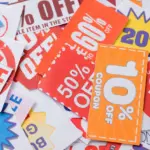Congratulations, you’re a winner!
Gone are the days where consumers are instantly excited to receive a winning email confirming they have won a promotion. Unfortunately there is often a belief that it must be a scam.
We recently enjoyed this @TheGuardian article highlighting the difficulty in contacting winners over email. This is all too familiar for us. We work on some of the largest sales promotions where winners are usually notified over email, especially if there are large numbers of winners for low value prizes.
According to YouGov, 54% of consumers are willing to give their e-mail to brands to participate in a promotion. However, with 43% of consumers having been a victim of fraud or a scam, naturally consumers are very wary of fraudulent activity. In addition to this fear factor, winners often can’t remember entering a promotion and see the email subject line and just think it’s too good to be true.

We have run plenty of promotions now to know what works best and have compiled our 7 top tips to help encourage your winners to accept their prize (and to stop asking you if it’s a scam).
- Carefully consider the subject line – If you get this wrong, it might end up in their junk folder, meaning not only may the winner not ever see it, but may believe it to actually be junk if that’s the folder it gets sent to. We recommend keeping use of special characters limited, especially exclamation marks. Also decide if you need to announce they’re a winner in the subject line. Note how the National Lottery keep it vague, and very intriguing.. ‘News about your ticket’.
- Keep the email size small – Large emails might also be treated as spam and not get found. To keep the size down, don’t use too many images.
- Make sure the email looks legitimate – Use a branded letter head at the top, or at least a good resolution logo. Design the email as you would any other promotional touchpoint and of course ensure there are no spelling mistakes (this is often a tell-tale sign an email is a scam).
- Remind winners of the promotion details – The winner may not remember the brand’s creative name for the promotion, but you may remind them of what they entered into by mentioning the top prize(s), when it was live, and if possible how and when they entered.
- Invite winners to validate their win – Addressing the issue directly about winners perhaps not believing they have won, can sometimes put winners at ease. They may not trust a link to a website if it looks strange, but you suggest they get in touch to validate their win via phone or email and be ready to give them a friendly and personalised reply.
- State when winners will be contacted – At the point of participating in the promotion, when you confirm their entry has been received, clearly say when winners can expect to be contacted by email.
- And finally, where possible phone winners too – Request a phone number in the entry form and clearly say it is solely for the purpose of contact them if they win. The handling budget might not cover phone calls to everyone, but you consider calling those who do not reply within a week. At least for big prizes this is a great back up to get hold of the winners.
Is there anything else you’ve tried which has worked for you?








